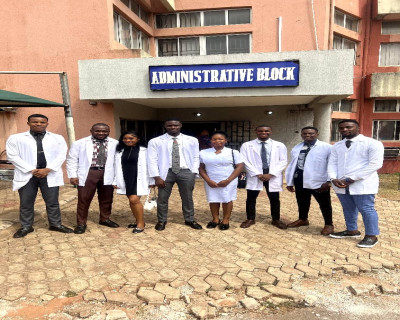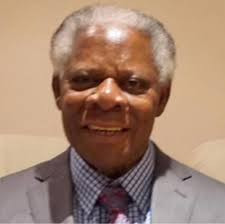... generates 500KVA of power from organic solid waste
NSUKKA-----A team of engineering-based multidisciplinary researchers, under the aegis of Laboratory of Industrial Electronics, Power Devices and New Energy Systems, LIEPNES, has generated 500KVA of electricity using a locally fabricated gasification plant.
The engineering system which was designed and fabricated with 100 percent local content, converts organic solid materials into syntetic gas for electric power generation and other uses.
The leader of the research team, Prof. Emenike Ejiogu, of Electrical Engineering Department, University of Nigeria, Nsukka, UNN, who spoke to reporters on Friday about the invention said the gasification plant could be a dependable solution to Nigeria's power crises if given the needed support for massive production.
Ejiogu also said that UNN would convert to the homegrown energy system to save it from the huge financial burden it incurs from subscribing to the national grid.
"We improved on a research we did in 2019. What my research team did was to design and fabricate with 100% local content, an engineering system that can convert organic solid wastes into what we call syntetic gas. Syntetic in the sense that you are using available organic material to make gas. Examples of the organic solid fuel that you can use include agro waste such as rice husk, and sawdust from the wood industries.
His words, "What we have done is to take these so called wastes and turn them into usable energy form which we call syntetic gas. Once that gas is available, you can use it for whatever you can use gas for; including generation of heat, electricity, or run it in a gas generator. You can equally modify a diesel engine to run the gas and produce electricity.
"We did that at the level of 100KVA last two years ago after a number of years of research work. A couple of days ago, we announced a bigger system, that is 5 mega watts. The work has been a subject of masters thesis. For us, it is not new because we have been working on it for years. However, we have reached an extent where we can put it to pratical use or commercialise it for broader use of the society, using UNN as a starting point.
"We designed a gasification plant which converts solid fuel into gas. It is an equivalent of refinery which turns crude oil into petrol and other products. As soon as there is enough resources to build enough gasification plant, UNN can conformably run on it. We would change the already existing diesel generators on campus and modify them to run on gas. By so doing, we don't have to impose extra cost of providing gas generators on the institution. We would put the big generators on campus together, synchronize them and inject into the local mini grid in the university. We have already started our pilot project, which is the 500KVA plant. We just need six of that to power UNN. We are very much near our goal of providing independent power source to the university. UNN is keen on the project because the Vice Chancellor, Prof. Arizechukwu Igwe, informed our team that the school spends between N70-80 million on power monthly."
On the issue of the national power crises, Ejiogu said, "We are using UNN to demonstrate what can be done because charity begins at home. The long-term goal is to provide homegrown solution to the perennial power problems in Nigeria. Our concept is Distributed Generation, not bulk generation of power in one station and transmitting to other places. That model is okay at a stage but a country like Nigeria where we have up to 1,000,000 square kilometers of land mass with difficult terrains, it becomes very difficult to transmit power to rural areas because of the high cost.
"We generate power close to where we intend to distribute. What it means is that an average city in Nigeria can run on its waste, both the ones generated in the city and nearby agricultural communities. If an average city gets 10 mega watts of electricity daily from its waste products, I can assure you that it would go a long way in solving our power problems.
"We have 774 local government areas in Nigeria. You can imagine giving each local government 10 mega watts of electricity daily. This can easily be done. We can easily inject 7,740 mega watts which is more than what we are generating at the central station. I can assure you that each of the local governments have enough wastes both from the agro and other organic wastes to give you 10 mega watts of electricity immediately.
"We have thought about generating power from organic wastes as part of energy mix in Nigeria. Kanji Dam, solar energy and other power sources will be there, but we want to introduce a mix. What we have done has advantages because we can rapidly inject power into any area where they are needed. An additional advantage is that you are cleaning up the city while you are doing that. In agricultural areas, you see a lot of wastes after the milling processes. The materials are all available. It would equally create massive employment along the value chains of the power generation."








